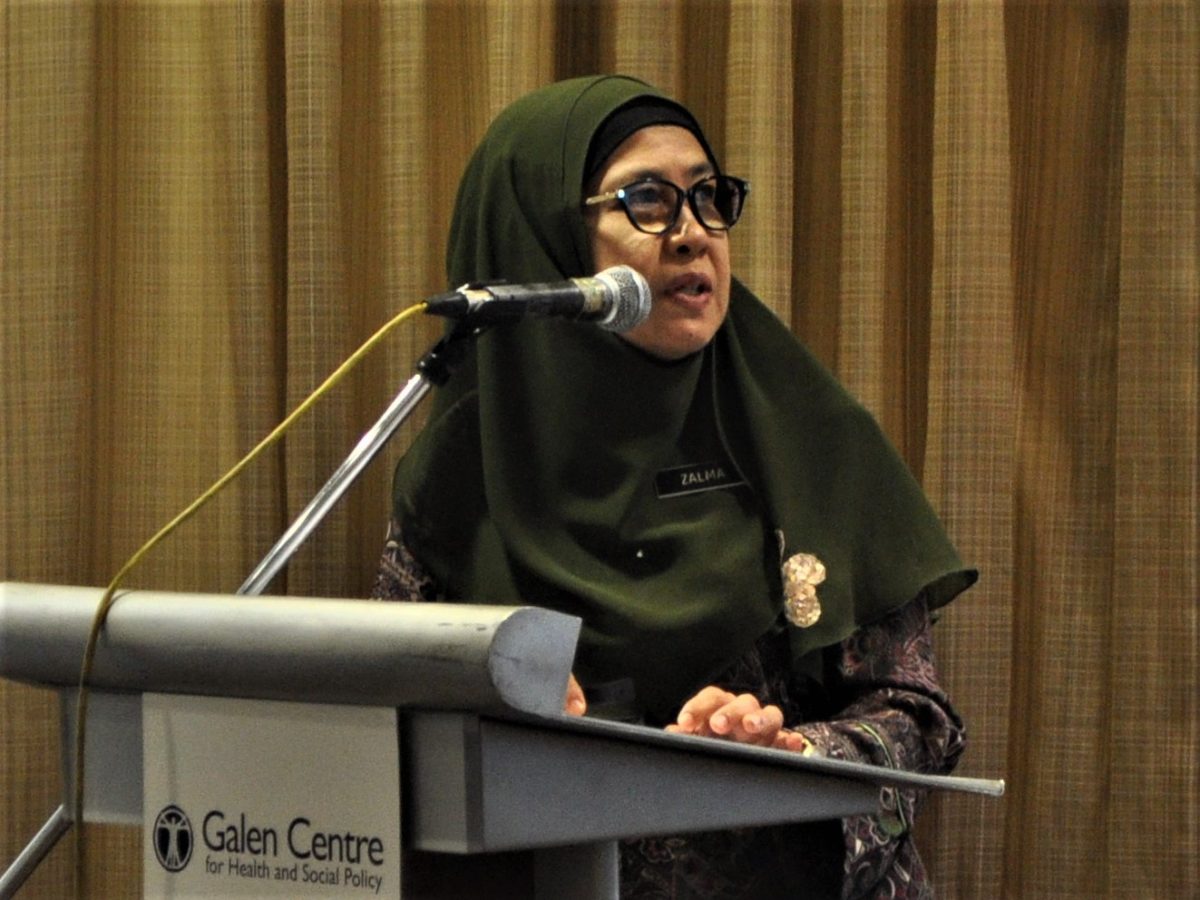PETALING JAYA, Sept 13 — The Ministry of Health (MOH) is proposing RM200 monthly food vouchers for low-income pregnant women to get nutritious meals to curb malnutrition in Malaysia.
According to the Global Nutrition Report 2018, Malaysia suffers a triple burden of malnutrition of stunting in children below five, anaemia in women of reproductive age, and overweight in women aged 18 and above.
Child stunting, wasting in children below five, anaemia in women of reproductive age, and diabetes in both women and men showed no progress or was worsening in Malaysia, but progress was on course to meet the target for overweight in children under five.
Zalma Abdul Razak, director of MOH’s nutrition division, said the health cluster of the National Cost of Living Action Council has yet to present their proposal on nutritious food vouchers to the government council headed by Deputy Prime Minister Dr Wan Azizah Wan Ismail.
“We propose something like food vouchers to supply fruits, vegetables, protein to pregnant mothers among the B40 group,” Zalma told a roundtable discussion organised by the Galen Centre for Health and Social Policy here yesterday on malnutrition, referring to the bottom 40 per cent (B40) of income earners.
“The amount of funds we need is very huge — billions. Hopefully we can do a pilot study. Vouchers is one of the most effective ways to address food insecurity.”
Zalma told CodeBlue at the sidelines of the conference that MOH was proposing to work with a non-profit called MyKasih that provides food aid to the less fortunate. MyKasih’s food aid recipients get a monthly allowance that can be drawn on using their MyKad or MyKasih smartcard that allows them to buy approved essential food items at participating retail outlets, a model that MOH plans to follow.
“We want to work with groceries or supermarkets to buy milk, protein-rich food, fish, chicken, fruits and vegetables, food high in iron and protein,” she said.
The idea is to select retail outlets near the target groups and public clinics so that health care workers can easily monitor pregnant women’s health status and prevent anaemia. A pilot project is suggested in Kuala Lumpur or Selangor to focus on the urban poor.
According to the Global Nutrition Report citing 2016 data, Malaysians did not consume enough calcium, milk, nuts and seeds, legumes, polyunsaturated fats, whole grains, and fruits and vegetables that would minimise their risk of death. Malaysians’ consumption of sugar-sweetened beverages also exceeded Asia and global numbers.
United Nations special rapporteur on extreme poverty and human rights Philip Alston recently said urban poverty was obvious in Malaysia, citing a 2018 Unicef survey of low-income apartments in Kuala Lumpur that found 7 per cent of people living below the national poverty line, 85 per cent in relative poverty, and 99.7 per cent of children living in relative poverty.”
One in five Malaysian children under five, he said, are stunted.
Zalma said MOH also hoped to work with Food Bank Malaysia, a programme under the Ministry of Domestic Trade and Consumer Affairs that collects and distributes food to the B40 and students at 20 public universities.
“The health cluster has already agreed, but the issue is funding,” she said, noting that a nationwide nutritious food voucher programme would cost billions of ringgit.
Former Malaysian Medical Association (MMA) president Dr Milton Lum, who is also a consultant obstetrician and gynaecologist, observed that Malaysia was the only country in Asean with all three burdens of malnutrition of stunting, anaemia, and overweight and obesity.
“Most of these countries are in Africa with income and development status much much behind Malaysia,” Dr Lum told the roundtable discussion.
He also noted that Malaysia failed to achieve its targets by 2015 for reducing child stunting, child wasting, anaemia in women of reproductive age, and overweight and obesity.
The new National Plan of Action For Nutrition of Malaysia 2016-2025 plans to reduce, by 2025, stunting to 11 per cent from 17.7 per cent in 2015, wasting to 5 per cent from 8 per cent in 2015, and anaemia in women of reproductive age to 11 per cent from 23.9 per cent in 2015.
But the government’s 2025 target for overweight and obesity was simply “no increase from baseline data” of almost half of the adult population in Malaysia, or 47.7 per cent, in 2015.
“So, has everyone given up? If you give up and you don’t try, the percentage may not decrease in 2025, you know,” Dr Lum said.
He believed that Malaysia’s target for reducing child wasting was achievable, but was uncertain about the government’s goals for decreasing child stunting and anaemia in women.
“Anaemia – if we try hard enough, we can bring it down to single digits. If we catch every pregnant woman and make sure she takes iron and folic acid, it’ll make a big impact,” Dr Lum said.








